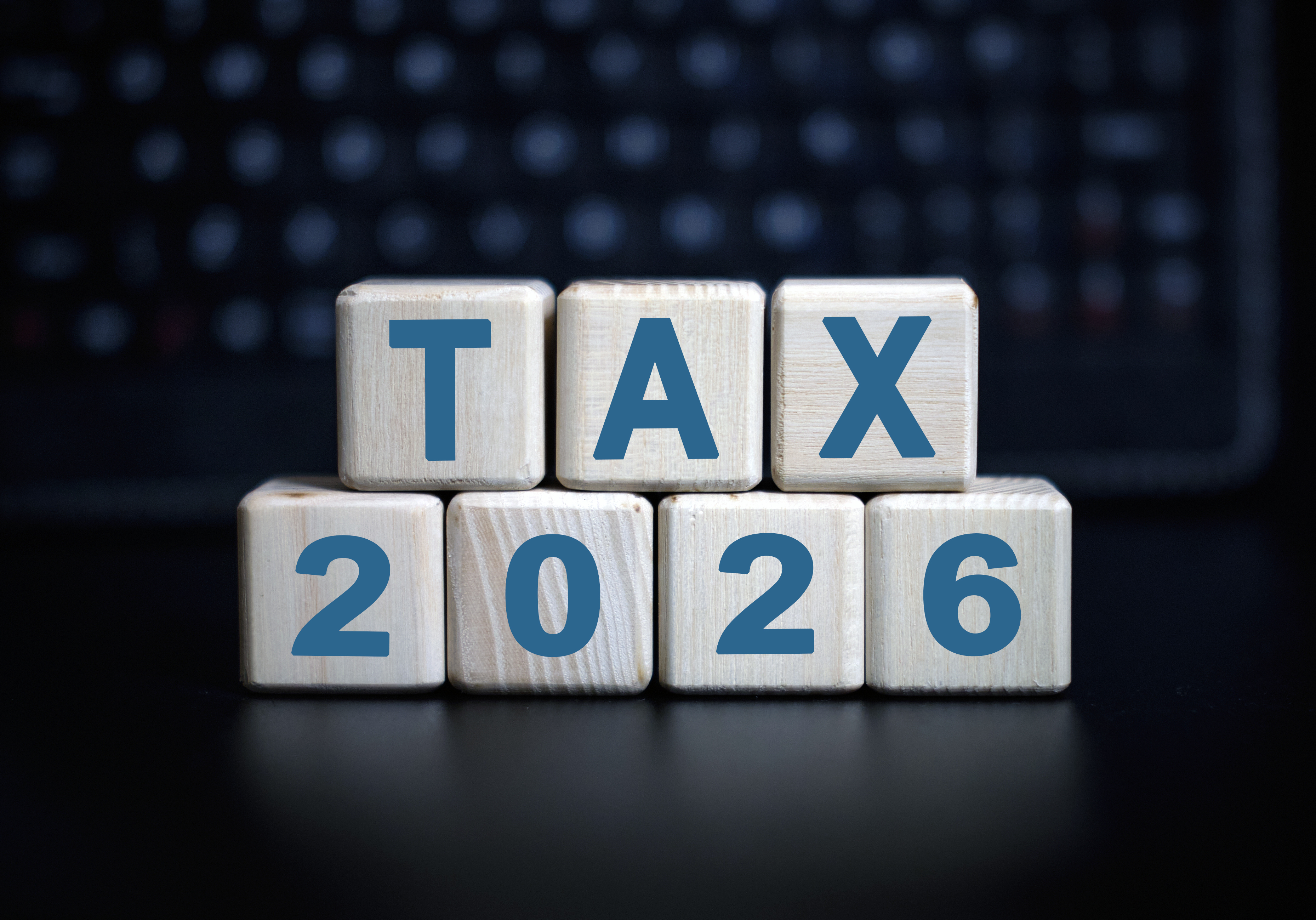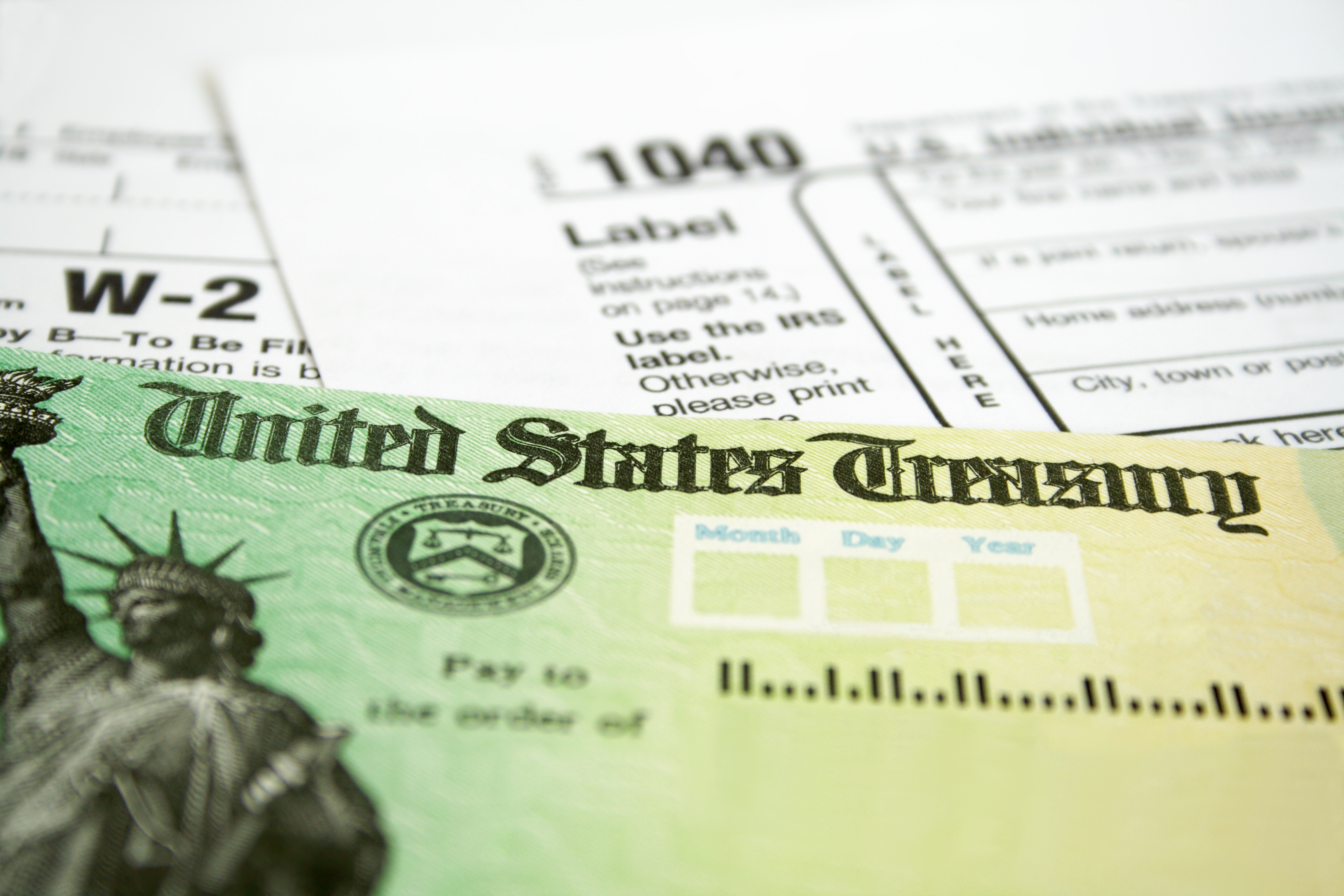IRS Phasing Out Paper Checks: Here's What to Know in 2026
IRS tax refunds and Social Security paper checks are typically delivered online now. Will that impact your money?


Profit and prosper with the best of Kiplinger's advice on investing, taxes, retirement, personal finance and much more. Delivered daily. Enter your email in the box and click Sign Me Up.
You are now subscribed
Your newsletter sign-up was successful
Want to add more newsletters?
What do increased fraud, high costs, and operational inefficiencies all have in common? Paper checks, or at least, those were the reasons cited when President Donald Trump issued an executive order last year that mandated the federal government cease paper check payments.
Since then, the IRS, the Social Security Administration (SSA), the U.S. Department of Veterans Affairs, and other federal government agencies have started phasing out physical checks, with the official phaseout date reported as September 30, 2025. But with tax season just around the corner, where does that leave you?
We’ll cover the ins and outs of what to know about the IRS paper check phaseout — so you can be prepared if you received a paper check for your tax refund last year, or receive other payments from the government, like Social Security benefits.
From just $107.88 $24.99 for Kiplinger Personal Finance
Become a smarter, better informed investor. Subscribe from just $107.88 $24.99, plus get up to 4 Special Issues

Sign up for Kiplinger’s Free Newsletters
Profit and prosper with the best of expert advice on investing, taxes, retirement, personal finance and more - straight to your e-mail.
Profit and prosper with the best of expert advice - straight to your e-mail.
In the news: Are you expecting your W-2? Here's When It Could Arrive.
2026 IRS Checks: Paper vs. Digital
- Generally, after September 30, 2025, the Treasury Department has said that all federal agencies will cease sending and receiving paper checks as a form of payment.
- However, there are ways to pay the IRS without a check and to get a tax refund without a bank account.
- Some individuals might be granted an exception to this rule through a waiver (PDF), particularly for those who receive Social Security benefits.
FAQs
Did paper checks go away?
In general, all federal agencies phased out sending and receiving paper checks after the September 30 deadline. This included:
- The Internal Revenue Service (IRS).
- Social Security Administration (SSA).
- Department of Veterans Affairs (VA).
- U.S. Department of the Treasury.
- U.S. Department of Labor (DOL).
- Railroad Retirement Board (RRB).
- Federal Motor Carrier Safety Administration (FMCSA).
Other federal government agencies that issued benefits have reportedly ceased sending and receiving physical check payments. That includes, for example, the Defense Finance and Accounting Service, the Bureau of Alcohol, Tobacco, and Firearms (TTB), and the Office of Personnel Management (Civil Service).
Why the shift to electronic payments?
According to the Bureau of Fiscal Service, check fraud has increased nationwide by 385% since the beginning of the COVID-19 pandemic. This fraud has impacted IRS and Social Security payments.
- Additionally, issuing paper checks is relatively expensive, costing the federal government about 50 cents per payment compared with an electronic funds transfer (EFT), which might cost less than 15 cents per check.
- Physical checks are also 16 times more likely to get “lost, stolen, altered or delayed,” making printed payment methods more inefficient than digital payments.
Can I still pay my taxes with a check?
Yes, you can still pay the IRS via a mailed check or money order. However, the IRS encourages taxpayers to pay electronically as "it's fast, easy, and secure."
You can use the Electronic Federal Tax Payment System (EFTPS) to pay your federal taxes. Alternatively, you can pay your federal tax bill via IRS Direct Pay, through your online IRS account, or by way of debit card, credit card, or digital wallet.
For more information, check out Kiplinger’s report How to Pay the IRS if You Owe Taxes.
How will I get my IRS tax refund?
If you typically receive a paper check for your federal tax refund, you'll most likely need to set up a digital payment method for tax season 2026:
- Direct Deposit into your bank account.
- Mobile payment app (such as PayPal).
- Directly into a reloadable prepaid debit card.
Although some of these methods might be acceptable to the IRS, your state tax agency might have different rules and requirements for digital checks.
Be sure to check your state’s Department of Revenue website to see which methods of deposit (and payment) are acceptable.
Related: Five Ways Trump’s Tax Bill Could Boost Your Tax Refund (or Shrink It)
Will Social Security benefits go away?
While the original phaseout date for Social Security paper checks was September 30, officials later clarified that support would be provided for beneficiaries who could not transition to the electronic payment methods after the deadline. (More on that later.)
However, if Social Security beneficiaries are able, they are encouraged to set up one of the following online payment options, per the SSA:
- Direct deposit. Sign up to have funds transferred directly into your bank account. If you don’t have a bank account, the Treasury recommends opening one by visiting the FDIC website or MyCreditUnion.gov.
- Direct Express® card. Use a prepaid debit card designed for federal benefit recipients.
You can enroll online for digital payments from several federal agencies (such as Social Security, Veterans Affairs, SSI, etc.) at GoDirect.gov or by calling Go Direct at 1-877-874-6347.
- But if you need assistance setting up your online payment method, you can also contact the SSA at 1-800-772-1213.
- Similarly, federal tax refund assistance can be reached via the IRS at 1-800-829-1040.
For all other federal agencies, visit the applicable website for potential ways to receive assistance setting up your digital payment.

If you typically receive an IRS refund check, you may be asked to set up direct deposit in the 2026 tax season.
What if I don't have a bank account?
You can use a Direct Express Prepaid Debit Card to receive digital payments from the SSA or the IRS if you don’t have a bank account, according to the U.S. Treasury.
The prepaid card functions similarly to a traditional debit card and has no enrollment fees, minimum balance requirements, or credit checks for preapproval to get the card.
Alternatively, there might be limited exceptions for people who don't have bank accounts who need to receive Social Security benefits or an IRS tax refund via a physical check, per Trump via the executive order:
- Individuals without access to digital banking services (or other electronic payment systems).
- Emergency payments (those that could cause an undue hardship, like a FEMA disaster relief payment).
- National security matters.
These “rare circumstances” might also apply to beneficiaries of other federal agency checks, such as recipients from Veterans Affairs and the Civil Service.
What are the paper check waiver requirements?
You can be granted a waiver to continue receiving federal benefit payments by physical check, which is how some are still receiving checks from the federal government after the phaseout deadline. However, waivers are by application only and are issued at the discretion of the Treasury Electronic Payment Solution Center.
Here are the general waiver requirements (you must meet one):
- Mental impairment. You have a documented mental disability that makes it difficult to manage electronic payments.
- Remote location. You’re living in a remote area that cannot support electronic banking.
Additionally, Go Direct (a program to help you set up digital payments for several federal benefits) states that print check recipients who are age 90 or older might be eligible for a waiver.
But these criteria generally apply to federal beneficiaries. If you need a waiver to make a payment to a federal agency, such as the IRS, reach out to that department directly for a potential exception.
Where’s the paper check waiver form for Social Security benefits?
If you think you may qualify for a Social Security paper check exemption, you might be eligible for a waiver. Here are the steps to apply:
- Call the U.S. Treasury's Electronic Payment Solution Waiver Line at 1-855-290-1545.
- Request an application over the phone.
- Alternatively, you can print and fill out FMS Form 1201W (PDF) to request a waiver to receive printed Social Security checks. Still, you must meet the strict eligibility requirements mentioned above.
What are the latest scams to look out for today?
Unfortunately, government officials have already issued warnings about the high likelihood of scams emerging during the transition from paper to paperless checks for taxpayers.
To help protect yourself and your loved ones from potential scammers, remember these tips:
- No federal agency will contact you asking for your login or banking information. This includes via email, phone, or text message.
- Only update your payment information through official government sites like SSA.gov or IRS.gov.
- If in doubt, talk to a trusted friend, family member, or neighbor about any seemingly “urgent” messages coming from a federal agency.
Related: AI Tax Scams Target Middle and Older Adults: What to Know
Read More
- IRS Income Tax Refund Schedule
- New Bill Would End Taxes on Social Security Benefits
- IRS in Turmoil: Budget Cuts and Staff Shake-Ups Threaten Taxpayer Services
- Old Tax Rules for Social Security Are Costing Retirees Money
Profit and prosper with the best of Kiplinger's advice on investing, taxes, retirement, personal finance and much more. Delivered daily. Enter your email in the box and click Sign Me Up.

Kate is a CPA with experience in audit and technology. As a Tax Writer at Kiplinger, Kate believes that tax and finance news should meet people where they are today, across cultural, educational, and disciplinary backgrounds.
-
 Why Some Michigan Tax Refunds Are Taking Longer Than Usual This Year
Why Some Michigan Tax Refunds Are Taking Longer Than Usual This YearState Taxes If your Michigan tax refund hasn’t arrived, you’re not alone. Here’s what "pending manual review" means and how to verify your identity if needed.
-
 If You'd Put $1,000 Into Caterpillar Stock 20 Years Ago, Here's What You'd Have Today
If You'd Put $1,000 Into Caterpillar Stock 20 Years Ago, Here's What You'd Have TodayCaterpillar stock has been a remarkably resilient market beater for a very long time.
-
 Good Stock Picking Gives This Primecap Odyssey Fund a Lift
Good Stock Picking Gives This Primecap Odyssey Fund a LiftOutsize exposure to an outperforming tech stock and a pair of drugmakers have boosted recent returns for the Primecap Odyssey Growth Fund.
-
 Why Some Michigan Tax Refunds Are Taking Longer Than Usual This Year
Why Some Michigan Tax Refunds Are Taking Longer Than Usual This YearState Taxes If your Michigan tax refund hasn’t arrived, you’re not alone. Here’s what "pending manual review" means and how to verify your identity if needed.
-
 Why Your Pet Should Be In Your Estate Plan
Why Your Pet Should Be In Your Estate PlanIncluding your wishes in your will or in a pet trust can ensure proper care when you can’t provide it.
-
 How to Find Joy and Meaning When You Want to Retire — But Can’t Yet
How to Find Joy and Meaning When You Want to Retire — But Can’t YetFor Gen X, delaying retirement can be an opportunity to pilot-test your second act, plan for your inheritance and structure trusts for your kids.
-
 A Newly Retired Couple With a Portfolio Full of Winners Faced a $50,000 Tax Bill: This Is the Strategy That Helped Save Them
A Newly Retired Couple With a Portfolio Full of Winners Faced a $50,000 Tax Bill: This Is the Strategy That Helped Save ThemLarge unrealized capital gains can create a serious tax headache for retirees with a successful portfolio. A tax-aware long-short strategy can help.
-
 5 Retirement Myths to Leave Behind (and How to Start Planning for the Reality)
5 Retirement Myths to Leave Behind (and How to Start Planning for the Reality)Separating facts from fiction is an important first step toward building a retirement plan that's grounded in reality and not based on incorrect assumptions.
-
 I'm a Financial Adviser: Silence Is Golden, But It Hurts Your Heirs More Than You Think
I'm a Financial Adviser: Silence Is Golden, But It Hurts Your Heirs More Than You ThinkTalking to heirs about transferring wealth can be overwhelming, but avoiding it now can lead to conflict later. Here's how to start sharing your plans.
-
 8 Boring Habits That Will Make You Rich in Retirement
8 Boring Habits That Will Make You Rich in RetirementThese mundane activities won't make you the life of the party, but they will set you up for a rich retirement. Discover the 8 boring habits that build real wealth.
-
 QUIZ: Are You Ready To Retire at 55?
QUIZ: Are You Ready To Retire at 55?Quiz Are you in a good position to retire at 55? Find out with this quick quiz.